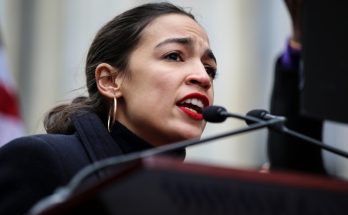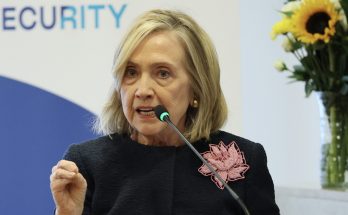
Canadian Prime Minister Mark Carney has apologized to U.S. President Donald Trump over a political advertisement that invoked former President Ronald Reagan’s comments on tariffs.
The ad, which aired on major American television networks earlier this month, sparked backlash for its use of Reagan’s 1987 radio address on trade barriers. In that speech, Reagan warned about the dangers of tariffs, cautioning that they could trigger wider trade disputes and harm the global economy.
Commissioned by Ontario Premier Doug Ford, the advertisement featured excerpts from Reagan’s remarks to highlight concerns about the Trump administration’s proposed tariffs on Canadian goods. Ford defended the ad as both “accurate” and “effective,” calling it one of the most successful messages of his political career.
The White House swiftly responded to the ad’s release on October 14, 2025, arguing that the excerpts used failed to capture the full context of President Reagan’s original remarks.
Following the controversy, President Trump temporarily suspended ongoing trade negotiations with Canada and announced an additional 10 percent tariff on select Canadian imports.
Trump weighed in on the controversy in a Truth Social post, asserting that the advertisement misrepresented Reagan’s position. He emphasized that Reagan had, in fact, supported the use of tariffs when they served to protect U.S. national security and American workers.
The Ronald Reagan Presidential Foundation, the nonprofit organization that preserves the former president’s legacy, also commented on the matter. The foundation criticized the ad for using selectively edited audio clips, warning that the presentation risked distorting Reagan’s full position on trade policy.
Carney, who reviewed the advertisement’s script alongside Ontario Premier Doug Ford before it aired, said he had expressed concerns about moving forward with the campaign but was ultimately overruled.
A week ago, following the Asia-Pacific Economic Cooperation summit in South Korea, Carney told reporters that he had privately apologized to Trump during a dinner hosted by South Korea’s president on Wednesday, October 22.
Carney said his apology was intended to address the unintended diplomatic fallout from the advertisement and its potential impact on U.S.–Canada relations.
“He was very nice. He apologized for what they did with the commercial because it was a false commercial. You know, it was the exact opposite, Ronald Reagan loved tariffs,” Trump told reporters on Air Force One as he flew to his Mar-a-Lago resort for the weekend.
Asked if he planned to resume trade talks with the Canadian leader, Trump responded: “No, but I have a very good relationship. I like him a lot.”
The clip that Ford’s government aired was from April 1987, in which the now-late-president said: “When someone says, ‘Let’s impose tariffs on foreign imports,’ it looks like they’re doing the patriotic thing by protecting Americans products and jobs. And sometimes for a short time it works, but only for a short time. But over the long run, such trade barriers hurt every American worker and consumer.
“High tariffs inevitably lead to retaliation by foreign countries and the triggering of fierce trade wars, then the worst happens, markets shrink and collapse, businesses and industries shut down and millions of people lose their jobs,” said the 40th president. “The way to prosperity for all nations is rejecting protectionist legislation and promoting fair and free competition.”
President Trump has used tariffs as leverage to push other countries to reduce their own taxes on American goods, brokering a series of trade compromises over the summer that helped avert the implementation of his proposed high “reciprocal” tariffs.
However, he maintained a 10% baseline tariff — about three times higher than previous levels — and several major exporting nations continue to face increased rates.
Canada, as part of the USMCA trade agreement negotiated during Trump’s first term, remains largely insulated from these higher duties. Most Canadian exports, including automobiles, are exempt from Trump’s 25% tariff on foreign-made cars.


